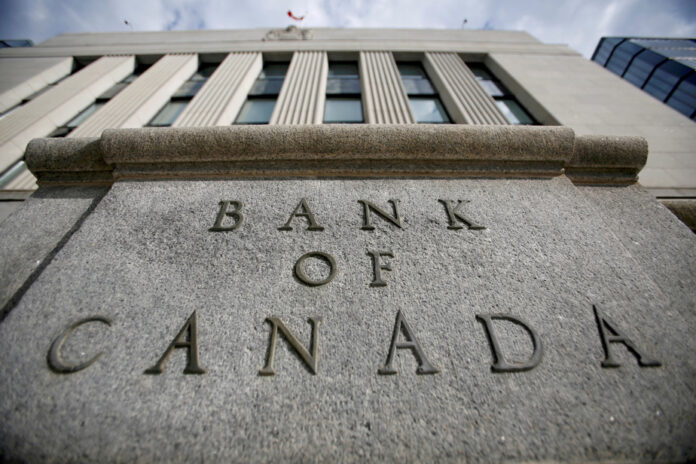(OTTAWA) Experts expect the Bank of Canada to raise its key rate next week as the state of the economy remains precarious.
The decision will be announced on Wednesday. Last month, the Canadian central bank raised its key rate by a quarter of a point to 4.75%.
In justifying its decision to end the pause in key rate hikes, the Bank of Canada said that “the accumulation of data since January was sufficient to convince the Board that monetary policy needed to be tighter to rebalance the supply and demand, and bring inflation back to the 2% target.
Deloitte chief economist Dawn Desjardins says the recent data seems to signal that the economy is taking a new turn. For example, the latest jobs report indicated that the unemployment rate had increased and wage growth had slowed.
The overall picture, however, suggests that inflation remains strong, wage growth is strong and the economy is choppy.
“I really think things are changing. Are they changing fast enough for the Bank of Canada’s liking? Maybe not,” says Desjardins.
The Bank of Canada has not disclosed what it intends to do in July, sending few signals to financial markets. She merely said that her board of directors will make a decision based on the next economic data.
The institution carefully examines what is happening in the labor market. She has previously warned that wage growth “was holding above rates that would achieve the 2% inflation target without substantial increases in productivity.”
The economy added 60,000 jobs in June, boosted by gains in full-time work, Statistics Canada said Friday. But as more Canadians looked for work and the population continued to grow, the unemployment rate soared to 5.4%, its highest level in a year.
Average hourly earnings rose 4.2% in June from a year earlier, after rising 5.1% in May (unadjusted for seasonality).
In its recent Business Outlook Survey, the Bank of Canada noted that companies “no longer expect labor costs to cause further upward pressure on the price growth of their outputs in next year “.
The senior director of the Canadian Economy team at Desjardins Group, Randall Bartlett, believes that the labor market remains tight.
“There is still great strength supporting the Canadian labor market. We can expect the policy rate to approach 5%,” he argues.
Price growth has slowed since last year. In May, the inflation rate was 3.4%, a sharp drop from the peak of 8.1% reached last summer. But much of that decline is attributable to lower energy prices, prices in other sectors of the economy have continued to climb.
In fact, core inflation, which excludes the most volatile price categories, accelerated in May.
The Bank of Canada and private sector economists say the real challenge is to get the inflation rate down to 2%.
Economists expected a recession, but the economy continued to grow, even though interest rates were the highest they had been in decades.
That’s why Mr. Bartlett believes the Bank of Canada is right to remain so vigilant.
“The Bank is trying to lay the foundations to sustainably bring inflation down to 2%,” he said.















